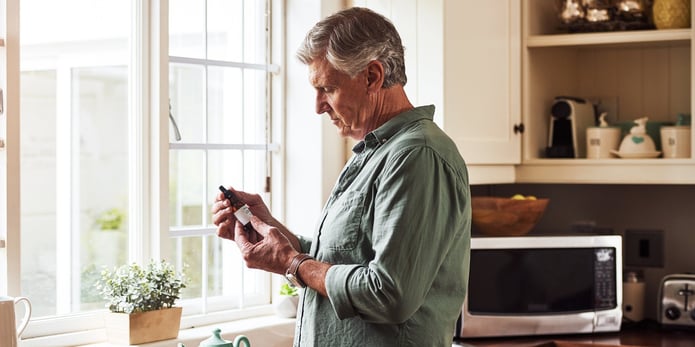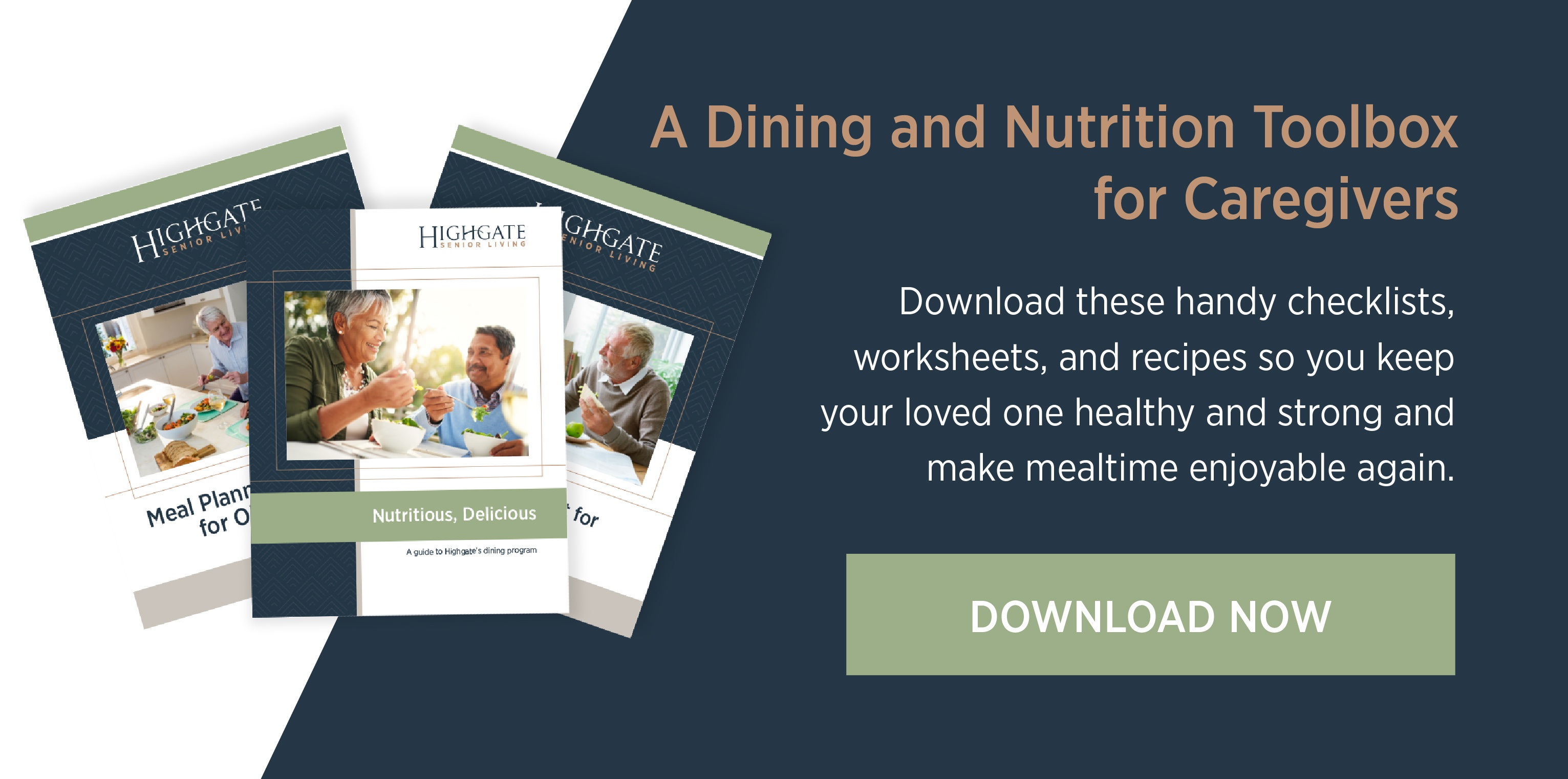
Thanksgiving is just around the corner. A time when many look forward to sitting around the table and enjoying the company of loved ones. But loss of appetite can make it hard to enjoy quality time when you’re worried Mom or Dad isn’t getting enough to eat.
Memory loss is frequently accompanied by changes to appetite and eating habits. If you’ve tried everything – even making Dad’s favorite sweet potato casserole – it might be time to take a step back and figure out what’s really going on. There can be quite a few different reasons your loved one has lost interest in eating or drinking, including:
- Not recognizing the foods you put on their plate.
- Medication side effects that are affecting their appetite.
- Changes to taste buds leave food not smelling or tasting as good as it once did.
Although some physicians prescribe Ensure or Glucerna dietary supplements or even appetite stimulants to boost nutrition, cancer treatment centers and memory care communities often turn to aromatherapy to help increase appetite.
As a family caregiver for an aging loved one with memory loss, you can easily adopt this holistic practice at home using essential oils. Here’s what you need to know.
What Is Aromatherapy?
Aromatherapy is the centuries-old practice of using essential oils to promote health and well-being. So, what are essential oils?
Essential oils are basically natural plant extracts. They are made by crushing or steaming the plant — typically flowers, leaves, fruit, or bark — to extract fragrant compounds, which are then combined with oil. These highly concentrated oils may then be inhaled directly or indirectly or applied to the skin through massage, lotions, or bath salts.
Aromatherapy works by stimulating the smell receptors in the nose, which then send messages to the part of the brain that controls emotions. It’s become a trusted tool, used at major health care systems across the U.S., including Fairview Health Services and Cleveland Clinic. It can reduce anxiety and pain, boost mood and appetite, and promote sleep.
Known as a complementary health approach, aromatherapy is often used alongside conventional practices to address health care. Seniors who receive an integrative and holistic approach to care say that they have higher levels of hope, dignity, autonomy, and vitality.
How Aromatherapy Affects Appetite
Aromatherapy helps to increase appetite because it activates the sense of smell, which stimulates the salivary glands.
Research conducted at Sharp Coronado Hospital in San Diego showed that people who receive aromatherapy have 10 to 20 percent greater food intake than those who don’t. After a year of aromatherapy before lunch and dinner, 86 percent of the study’s participants were able to get off appetite stimulants, which can be cause for concern because of their side effects.
The same methods used by the health care professionals at the hospital can be used by family caregivers to help encourage their loved one’s feelings of hunger.
How to Use Aromatherapy at Home
If eating is a struggle for your loved one, you might be wondering which scents help stimulate appetite, how you use them, and where do you get them?
Essential Oils to Stimulate Appetite
There are dozens of essential oils, all with different fragrances and chemical makeups. Some of the most commonly used essential oils to increase appetite include:
- Bergamot
- Caraway
- Cardamom
- Citrus
- Ginger
- Peppermint
- Roman chamomile
- Spearmint
Ways to Use Essential Oils
There are a variety of ways you can use essential oils, and you can use them alone or in any combination:
- Indirect inhalation: Use a room diffuser, which spreads the essential oil through the air, or place drops on a tissue or piece of cotton nearby. Wash cloth napkins in laundry detergent that has been infused with essential oils. Offer your loved one a warm washcloth spritzed with essential oils so they can wash their hands before mealtime.
- Direct inhalation: Apply a dab of the essential oil with a cotton swab onto clothing near the nose or neck at mealtime.
- Massage: Mix the essential oil with unscented lotion. Before mealtime, massage your loved one’s hands. Start with one drop of oil per 4 ounces of lotion and adding more from there.
Where to Find Essential Oils
When looking for essential oils, there are a few things you want to look for to ensure they’re high quality:
- Check the label for information on purity or other ingredients added to it — look for bottles that contain 100 percent essential oil with no other fillers. The label should also include the Latin name of the plant and in which country the plant was grown.
- Choose dark-colored glass containers to protect the quality of the highly concentrated oil. (It takes 220 pounds of lavender flowers to produce 1 pound of lavender oil!)
- Purchase products from a well-known and reputable company that's been around for several years to ensure you’re buying high-quality essential oils.
Essential oils are available online and in health food stores as well as in some supermarkets.
With the use of aromatherapy over time, you might notice that your loved one tends to eat more, which can enhance their nutrition and may help eliminate the need for supplement shakes or drugs.
If your older loved one is reluctant to try aromatherapy, there are other steps you can make mealtime enjoyable again. Check out this Home Dining Checklist for Memory Loss for more tips on addressing common dining and nutrition challenges. With a few simple changes to your approach, you can turn mealtime from a chore into a chance to not only support your loved one to eat and drink well but also to connect and improve your relationship.






